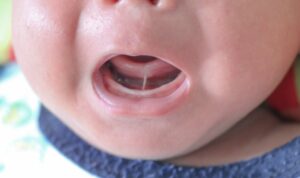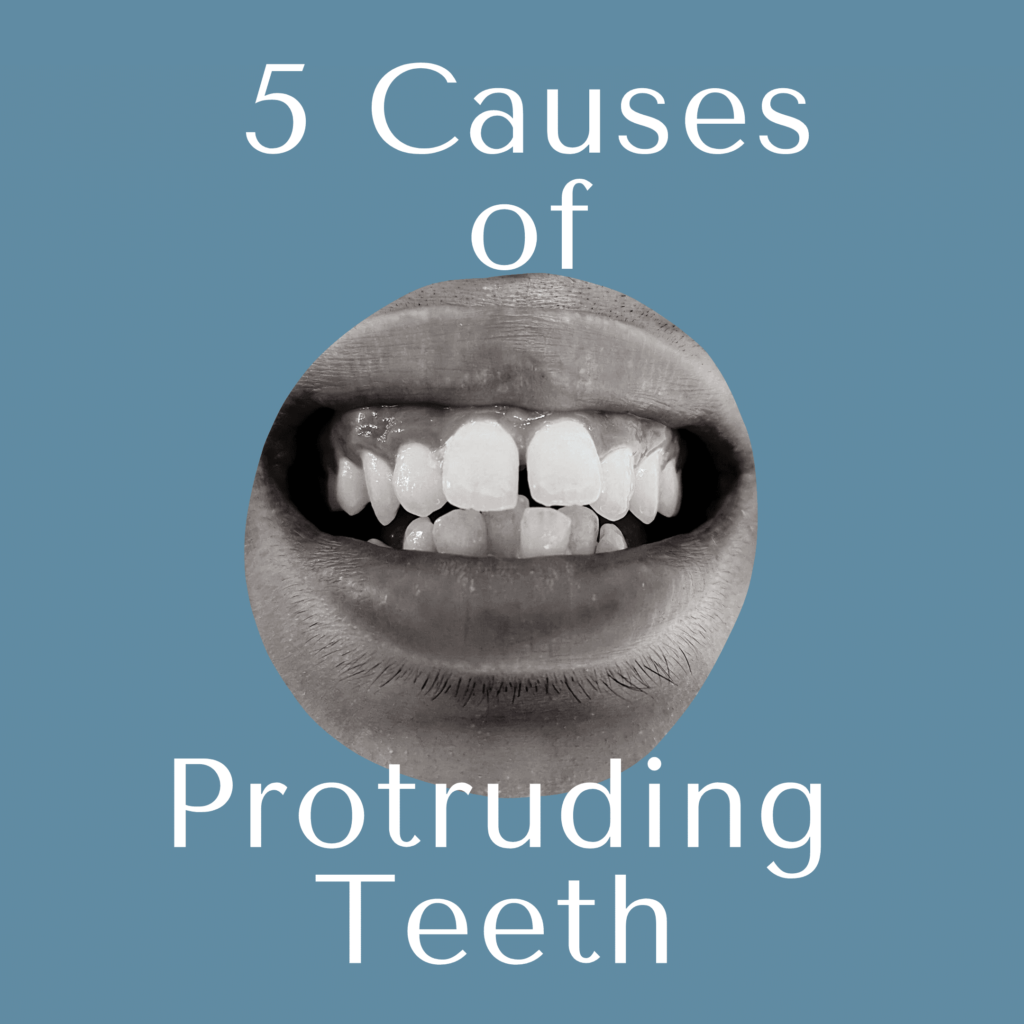Protruding teeth can pose a threat to your child’s oral health. In fact, a study performed by University of Adelaide in Australia actually confirmed that children with protruding teeth are at an increased risk of experiencing dental trauma. This is due to the fact that the affected teeth can protrude past the point of the protective lips. Regardless of how much teeth protrude from the mouth, protruding teeth are known commonly as buck teeth and by dentist’s as an overbite. An overbite is a form of malocclusion characterized by having an upper jaw that extends significantly over the lower jaw.
As mentioned above, protruding teeth can increase the risk of dental trauma. In addition, overbites can also cause certain complications like damage to the teeth and gums, pain or difficulty chewing, speech impediments, and breathing issues. For these reasons, mild to moderate cases of overbites can be treated with orthodontic treatment, while more severe cases may require jaw surgery.
Although some cases of buck teeth are caused simply by genetics, other cases can have other causes. Understanding what causes protruding teeth is an important step to preventing them altogether or to keep them from getting worse. Here are the most common causes of protruding teeth:
Genetics
First and foremost, overbites can be caused by genetics. In these cases, the jaw shape is inherited from the parents by the child. If the cause of an overbite is genetics, then a similar jaw shape is usually observed in the parents, siblings, or other close relatives. While there is no way to completely prevent an overbite due to genetics, it is possible to avoid behaviors that can make the overbite more severe.
Too Many or Too Few Teeth
The number of teeth can also affect the alignment of the bite and can possibly cause an overbite to occur. When too many teeth are present, this is known as crowding. Crowding can cause some teeth to be pushed forward and it can also cause erupting teeth to become impacted, or stuck in the jawbone. Missing teeth can also cause a problem, since the surrounding teeth will eventually shift into the space left behind. Anytime a tooth shifts from its normal position, this can create various alignment problems with the bite, such as an overbite.
Finger-Sucking

Sucking on a Pacifier
Just as finger-sucking can have a detrimental effect on your child’s bite, so can sucking on a pacifier. The Journal of the American Dental Association notes that sucking on a pacifier actually comes with a higher risk of developing an overbite than finger-sucking does.
Tongue Thrust


Dr. Leyster is a board-certified pediatric dental specialist. He is recognized as a Diplomate of the American Board of Pediatric Dentistry. He has served as faculty as an Assistant Professor at the University of Southern California School of Dentistry in the Division of Public Health and Pediatric Dentistry. Dr. Leyster belongs to the American Academy of Pediatric Dentistry, American Board of Pediatric Dentistry, California Society of Pediatric Dentistry, California Dental Association, Pacific Northwest Dental Association, and the American Dental Association.






